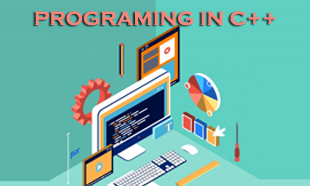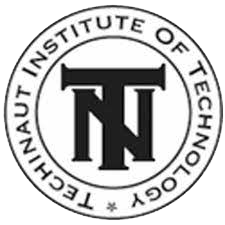0
Programming Course in C++" at GD Computer Class, a Techinaut Institute of Technology franchise in Una, Gir Somnath, Gujarat, provides comprehensive training on C++ programming language, covering topics from basic syntax to advanced concepts like object-oriented programming and data structures.
PROGRAMMING COURSE IN C++
GD Computer Class, located in Una, Gir Somnath, Gujarat, offers a specialized 6-month course in C++ programming. Operated as a franchise of Techinaut Institute of Technology, this program is designed to equip students with a comprehensive understanding and practical skills in the C++ programming language. Through a structured curriculum covering fundamental concepts, advanced techniques, and hands-on programming exercises, students develop a strong foundation and proficiency in C++ programming for various applications.
THE OBJECTIVE OF THE COURSE:
The primary goal of the Programming Course in C++ at GD Computer Class is to empower students with a solid foundation in C++ programming and object-oriented programming concepts. By the end of the course, students will have mastered the art of C++ programming, enabling them to:
- Understand the fundamental principles of C++ programming, including syntax, data types, and control structures.
- Apply object-oriented programming concepts such as encapsulation, inheritance, and polymorphism to design and implement C++ programs.
- Use advanced features of the C++ language, such as pointers, arrays, functions, and classes, for efficient program development.
- Implement error-handling mechanisms such as exception handling to write robust and reliable C++ programs.
- Develop reusable and modular code using concepts such as function overloading, operator overloading, and templates.
- Explore advanced topics such as virtual functions, polymorphism, and dynamic memory allocation in C++ programming.
COURSE OVERVIEW:
Section 1: Introduction to C++
Students are introduced to the C++ programming language, its history, features, and applications. They learn about the differences between C and C++ and the advantages of using C++ for software development.
Section 2: Object-Oriented Programming Concepts
This section covers fundamental object-oriented programming (OOP) concepts such as classes, objects, inheritance, polymorphism, and encapsulation. Students understand the principles of OOP and how they are implemented in C++.
Section 3: The Basics of C++
Students learn the basic syntax and structure of C++ programs, including data types, variables, constants, and basic input/output operations. They explore how to write simple C++ programs and understand the role of the primary function.
Section 4: Working with Operators and Expressions
This section covers arithmetic, relational, logical, and bitwise operators in C++. Students learn how to use operators to perform various operations on data and expressions.
Section 5: Controlling the Program Flow
Students learn about decision-making and looping constructs such as if-else statements, switch-case statements, and loops (for, while, do-while) in C++. They understand how to control the flow of execution in a program.
Section 6: Using Functions/Procedures
Students learn about functions in C++ and how to define, declare, and call functions. They explore function parameters, return types, and function prototypes and understand the concept of function overloading.
Section 7: Pointers and Arrays
This section covers pointers and arrays in C++. Students learn about pointer variables, pointer arithmetic, and dynamic memory allocation. They also understand how to use arrays to store and manipulate data collections.
Section 8: Binding Data and Functions
Students learn about classes and objects in C++ and how to define and use them. They explore data members, member functions, constructors, destructors, access specifiers, and object initialization.
Section 9: Function and Operator Overloading
This section covers function overloading and operator overloading in C++. Students learn how to define multiple functions with the same name but different parameters and how to overload operators to perform custom operations on objects.
Section 10: Reusing Classes
Students learn about inheritance and how to create derived classes from base classes in C++. They understand the concept of code reusability and how to extend and modify existing classes to create new ones.
Section 11: Virtual Functions and Polymorphism
This section covers virtual functions and polymorphism in C++. Students learn about virtual functions, function overriding, and dynamic polymorphism. They understand how to create base classes with virtual functions and derived classes that override them.
Section 12: Templates, Exception Handling
This section covers templates and exception handling in C++. Students learn about function templates and class templates for generic programming. They understand how to handle exceptions using try-catch blocks and throw statements to write robust, error-tolerant code.
CONCLUSION:
The Programming Course in C++ at GD Computer Class offers comprehensive training in C++ programming, with a strong focus on practical application. Our curriculum covers fundamental concepts, advanced techniques, and practical applications, ensuring that students develop proficiency in C++ programming for various software development projects. Graduates of the course are not just equipped with theoretical knowledge, but also with the practical skills needed to excel in careers as software developers, programmers, and system analysts. Join us at GD Computer Class and embark on a journey to become a proficient C++ programmer.


